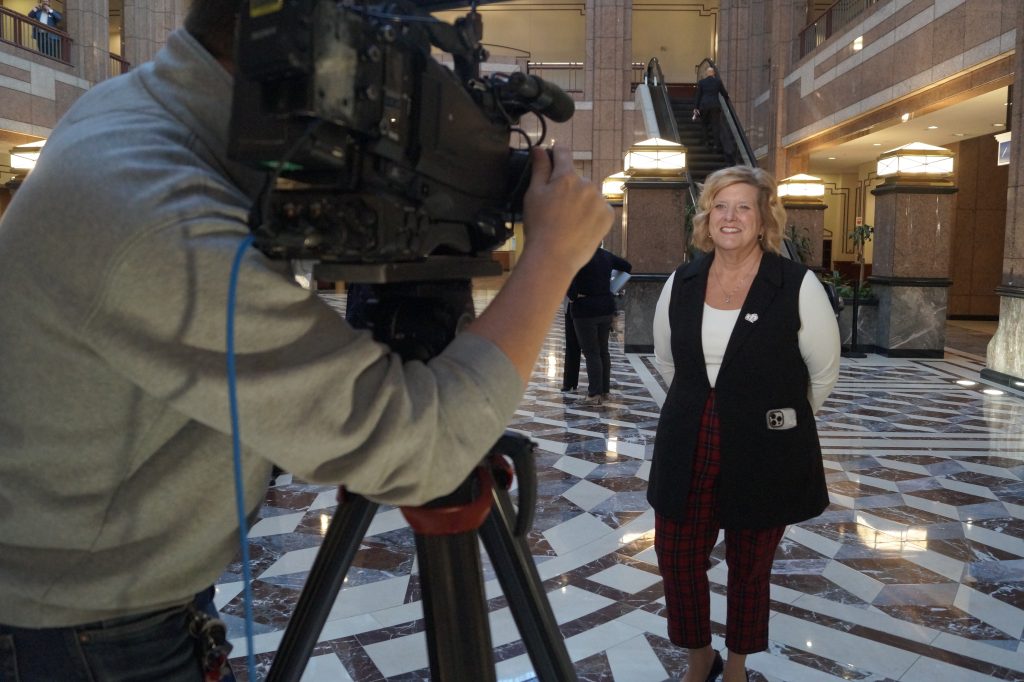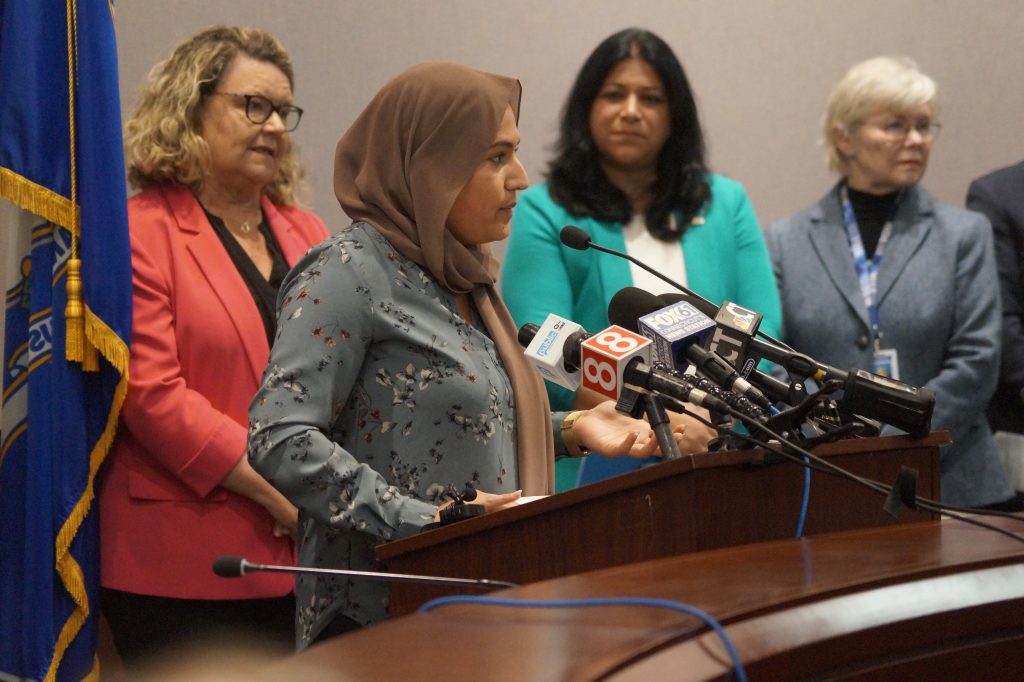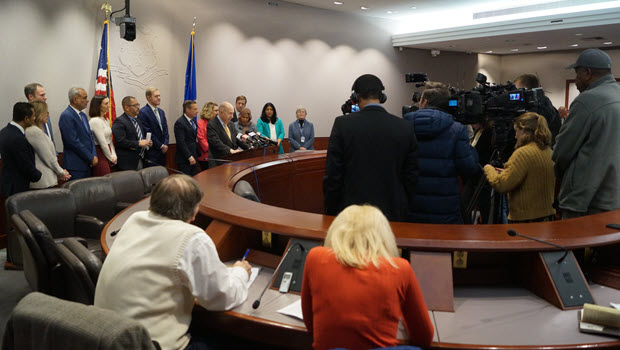At their first press conference of the legislative session, House and Senate Democrats today announced that education and housing will be their two central priorities this winter and spring. Senate bills with low numbers indicate legislation that is of the highest priority to lawmakers, and this year Senate leaders have chosen to make Senate Bill 1 an education bill.
“Senate Bill 1 is going to be a bill titled Increasing Resources for Students, Schools, and Special Education,” said Senate President Martin Looney, opening the press conference at the Legislative Office Building. “We all know that we need to do all that we can to increase the resources for our entire education system. We need to work on preparation for quality preschool and daycare, for our k-12 system, for higher ed, and for special ed.”
“Making education a priority issue is an essential nod to the importance of our profession,” said CEA President Kate Dias. “To combat the teacher shortage, making salaries competitive is incredibly important. We need to be able to attract people to the profession and provide them with salaries that will allow them to live in the communities they serve.”
Special education is a particular area of focus for legislators because expenses can vary so widely for towns year-to-year, making it difficult to plan effectively. The legislature has established a new Select Committee on Special Education to look into how the state funds special education and what can be done to better meet districts’ needs.

CEA President Kate Dias spoke with news outlets, including Fox 61, following the press conference.
“A family [with a child eligible for special education services] will move into a small Eastern Connecticut town—this is why I think this issue plays with Republicans and Democrats—and it will be a hit to the town’s budget of as much as hundreds of thousands of dollars,” said House Speaker Matt Ritter. “That family could live across the street from another town and that town pays nothing. And so, at some point, there’s a moral obligation for the state of Connecticut to help towns and also support these families so they’re not shopping from town to town to find the best services when they’re already dealing with the fact that they have a child with probably serious intellectual and physical disabilities.”
“It’s amazing to see how many people are here and committed this session to really addressing our educational needs,” State Rep. Jennifer Leeper told the packed room. “We hear from our districts that they are buckling under the expense of special education, and it’s really our opportunity now to take a systemic look at how we better financially incentivize our districts to meet students’ individual and unique learning needs in-district instead of just prioritizing outplacing the kids with the most specific needs.”
“The ECS formula currently does not include a special education count or a weight for special education, and so seeing if that’s something that we could address this session—that’s probably one of the biggest goals,” said CEA member and State Rep. Maryam Khan.

East Hartford special education teacher State Rep. Maryam Khan will co-chair the newly formed Select Committee on Special Education.
Khan, a special education teacher in East Hartford, has been named to co-chair the Select Committee with Senator Sujata Gadkar-Wilcox and said she is excited that both chambers have decided to make special educational a priority this session.
“Special education is the number one shortage area in the state of Connecticut, and we need to really be looking at what we can do to retain special education teachers and make the job more doable,” she said.
“We’ve overburdened special educators with administrative responsibilities,” Dias said. “Teachers go into special education because they really want to care for children who have learning challenges, and when we burden them with administrative responsibilities, we take away from their real skill set which is working with students. It’s appropriate that we have progress monitoring and other requirements, but we have to find a way to balance those demands so we don’t take away from our ability to actually serve children.”
While initiatives to improve education funding have obvious ties to the teaching profession, legislators’ other priority issue, housing, is also extremely important to educators as well as the students they serve.
State Senator Martha Marx has a sister who is a teacher, and Marx reports that every morning her sister helps students exit their family vehicles, many of which cost more than she makes in a year.
“My sister could never live in the town where she works,” Marx says. “Every representative and senator here has to truly think about those people in their district that are working in towns that they cannot afford to live in. That is the lens that I am going to be thinking about when I vote this session.”
Stay informed about all education proposals before the legislature—and more—by subscribing to the CEADaily.







